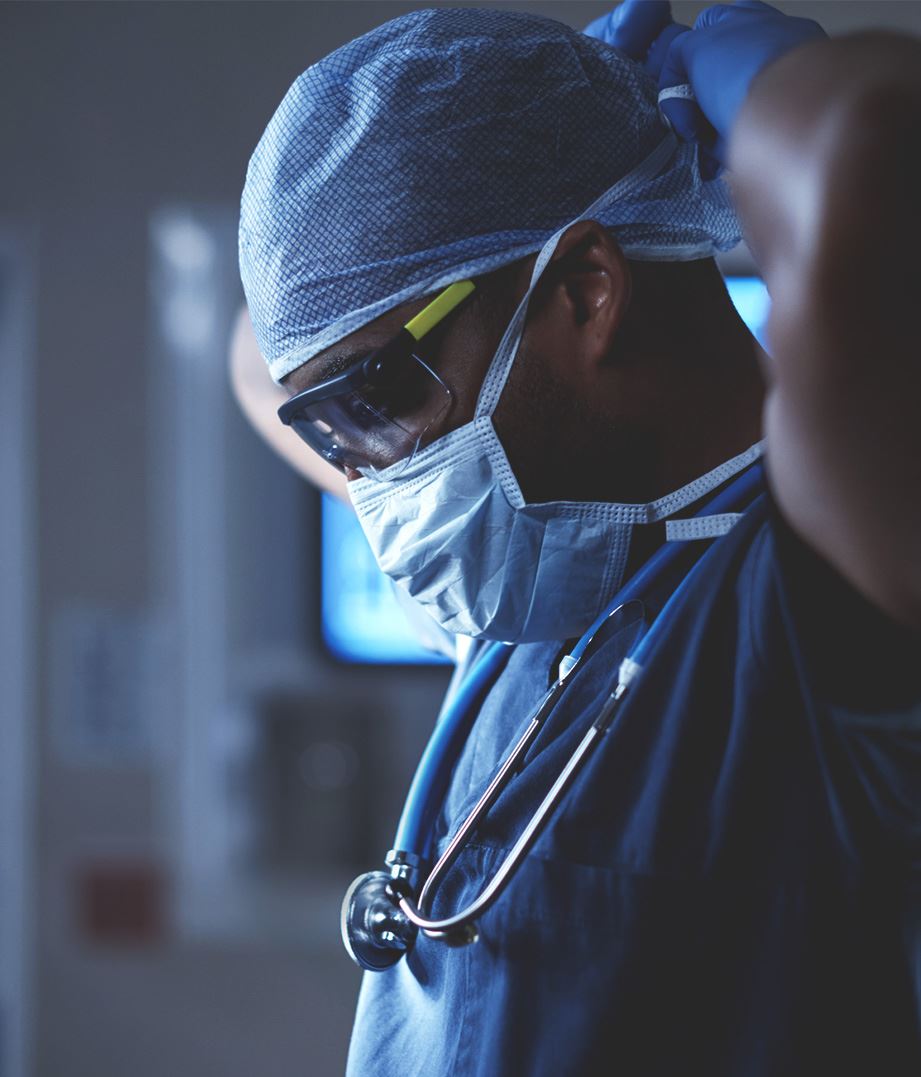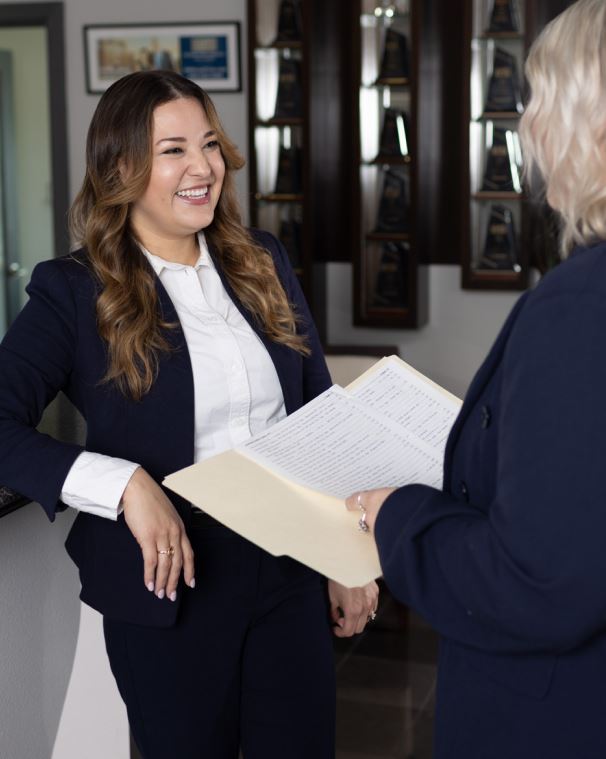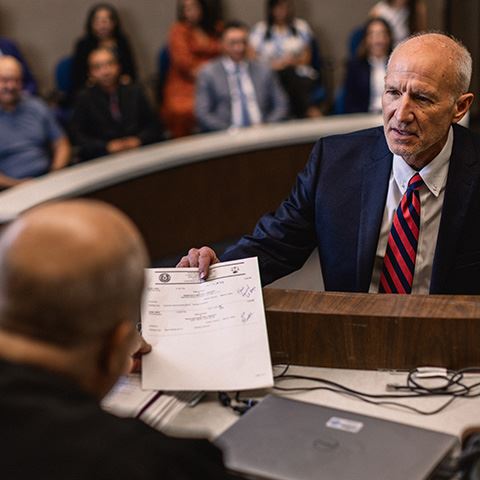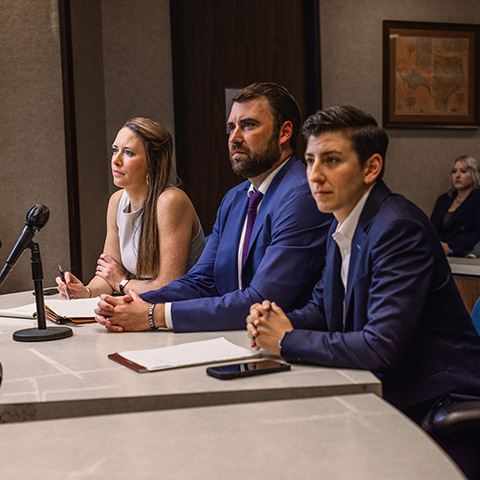Texas Dangerous Drug & Medical Device Injury Attorneys
Pursuing Justice for Texas Patients Harmed by Medical Negligence
As patients, we trust healthcare providers to prioritize and improve our health. More importantly, we trust physicians to put people over profits. Sadly, many medical companies choose to act negligently by pushing products or drugs that aren’t safe or ready for human use, leading to life-threatening injuries and fatalities for consumers. From negligent pharmaceutical companies to profit-driven medical device manufacturers, many healthcare entities willfully ignore the risks of their products to make a quick buck.
If you were harmed by a dangerous drug or defective medical device, our dangerous drug and medical device recall lawyers can relentlessly pursue justice on your behalf by seeking to hold all liable parties accountable. At Hilliard Law, we have over 30 years of legal experience protecting the rights of patients and consumers. Our Texas lawyers stand up to powerful pharmaceutical companies and manufacturers who perceive themselves to be above the law. If you were injured by a dangerous drug or defective medical product, turn to a nationally recognized firm with decades of experience.
If you were harmed by a dangerous drug or medical device, turn to Hilliard Law to demand the justice you deserve. Contact us online to discuss your case.


What Constitutes a “Defective” Drug or Medical Device?
Under Texas medical malpractice laws, a dangerous or defective pharmaceutical drug or medical device refers to a product that can cause harm or injury to patients when used as intended. These products may be flawed in their design, manufacturing, or labeling, leading to serious health complications or adverse effects.
Some key elements to understand about defective drugs and devices include:
- Design defects: A pharmaceutical drug or medical device may be considered defective if its design poses an unreasonable risk of harm to patients. This means that even when manufactured and used correctly, the product's inherent design makes it dangerous.
- Manufacturing defects: A product can also be deemed defective if errors occur during the manufacturing process, resulting in a product that differs from its intended design or specifications. These defects can make the drug or device more dangerous than originally intended.
- Labeling defects: Proper labeling is crucial for providing accurate information about the risks, potential side effects, and proper usage of a drug or device. If the labeling fails to adequately warn healthcare providers and patients of known risks or contains misleading information, it may be considered defective.
- Failure to warn: Manufacturers are responsible for warning healthcare providers and patients about any known risks associated with their products. If a pharmaceutical drug or medical device has potential dangers or side effects that are not adequately disclosed, it can be considered defective.
Common Drug & Device Injury Lawsuits We Handle
At Hilliard Law, our compassionate advocates have over three decades of experience advocating for victims harmed by defective drugs and devices in healthcare. Our firm can fight tirelessly for the justice and compensation you deserve to take back your life and hold negligent parties accountable for the immense pain and harm they inflicted on patients and their loved ones. We’ve helped clients in various dangerous drug lawsuits throughout Texas, working tirelessly to hold pharmaceutical companies and related parties accountable for negligence.
Common pharmaceutical and medical device injury cases we handle include:
- Opioids
- Gilead/Truvada
- Suboxone
Who Is Liable for Drug & Medical Device Injuries?
Depending on the unique circumstances of the case, various parties can be liable in dangerous drug or device injury lawsuits. Common liable parties in pharmaceutical injury cases include:
- The pharmaceutical manufacturer: Manufacturers of pharmaceutical drugs are responsible for ensuring their products' safety and efficacy. If a drug is found to be defective or unreasonably dangerous due to design, manufacturing, or labeling issues, the manufacturer may be liable for damages.
- The distributor or retailer: Parties involved in the distribution and sale of dangerous drugs, such as wholesalers, distributors, and retail pharmacies, may also be held liable if they knew or should have known about the risks associated with the product and failed to take appropriate action.
- Healthcare professionals: In some cases, healthcare professionals who prescribe or administer the dangerous drug may share liability. This can apply if they fail to properly inform patients about the potential risks or prescribe a drug in a manner that deviates from accepted medical standards.
Common liable parties in defective medical device injury cases include:
- The device manufacturer: Manufacturers of medical devices are responsible for ensuring that their products are safe and effective for their intended use. If a device has design defects, manufacturing flaws, or inadequate labeling, the manufacturer may be liable for damages.
- The distributor or retailer: Similar to dangerous drugs, parties involved in distributing and selling defective medical devices can also be held liable if they knew or should have known about the device's defects and failed to take appropriate action.
- Healthcare facilities and practitioners: In some instances, healthcare facilities and practitioners who used or recommended the defective medical device may share liability. This can occur if they were aware of the risks or fail to adequately inform patients about the potential dangers.
- Testing laboratories: If a medical device underwent testing at a laboratory that failed to identify potential defects or risks, the testing laboratory may also be held liable for damages.
Taking Action After Drug & Medical Device Recalls
Seeking sound counsel from a qualified attorney is essential to seeking fair compensation for harm sustained in a pharmaceutical or medical device injury lawsuit. It’s crucial for injured patients to take the following steps to pursue justice:
- Seek medical attention: Your well-being is always the top priority. If you suspect you were harmed by a dangerous drug or defective medical device, seek immediate medical attention. Remember to document all medical treatments, diagnoses, and related expenses.
- Preserve evidence: Preserve any evidence that support your claim, such as keeping the product, packaging, receipts, medical records, photographs, and any other relevant documents.
- Follow the recall instructions: Pay close attention to any recall instructions provided by the manufacturer, the U.S. Food and Drug Administration (FDA), or any other regulatory agency. Follow the instructions carefully to ensure your safety and gather additional information that may be relevant to your case.
- Document your experience: Keep a detailed record of your experience with the dangerous drug or defective device. Document any adverse effects, symptoms, or injuries resulting from its use. Include dates, times, and descriptions of events to help build a strong case.
- Consult with a qualified attorney: It’s imperative to consult with a knowledgeable attorney experienced in dangerous drug and defective medical device litigation. Your lawyer can evaluate your case, determine liability, and guide you through the legal process to protect your rights and pursue fair compensation.
- File a lawsuit: Your lawyer can assist you with filing a claim by taking swift legal action. A seasoned attorney can help you bring a lawsuit against liable parties by gathering strong evidence, conducting investigations, negotiating with insurance companies, and representing you in court if necessary.
- Recover damages: Your attorney can help you pursue fair compensation for the injuries you suffered due to medical negligence by seeking to recover damages, such as medical expenses, lost wages, pain and suffering, and other related losses.
In Texas, the statute of limitations for product liability claims, including drug and device claims, is two years from the date of discovery of the injury.
If you were harmed by a dangerous drug or medical device, call (866) 927-3420 to schedule a free consultation.



Texas Pool & Water Park Accident FAQ
Have questions? We are here to help. Still have questions or can't find the answer you need? Give us a call at 866-927-3420 today!
-
How Long Do I Have to File a Defective Drug or Medical Device Claim in Texas?
The statute of limitations for filing a defective drug or medical device claim is generally two years from the date of injury. However, the discovery rule may extend this timeline. Under this rule, the two-year period starts when the injured party knew or should have known about the injury and its connection to the defective drug or device.
-
What Types of Compensation Can I Receive for a Defective Drug or Medical Device Claim?
If you’ve been harmed by a defective drug or medical device in Texas, you may be entitled to several types of compensation. This can include medical expenses for treatment, lost wages if you’re unable to work, and pain and suffering for the physical and emotional distress caused by the injury. In some cases, punitive damages may also be awarded if the manufacturer acted with gross negligence or intentional misconduct.
-
What Are the Common Signs of a Defective Drug or Medical Device?
Common signs of a defective drug or medical device include unexpected or severe side effects, persistent symptoms that don't improve with treatment or complications that are not listed in the product's warnings or instructions. For drugs, you might experience symptoms that are not typical for the medication or that worsen over time. For medical devices, signs may include malfunctioning, improper functioning, or physical harm that is not consistent with the device's intended use. Always consult a healthcare provider if you suspect a defect, and document your symptoms and any interactions with the product.
-
What Should I Include in My Documentation for a Defective Drug or Medical Device Claim?
When preparing a defective drug or medical device claim, include comprehensive documentation such as medical records detailing your diagnosis and treatment, records of the drug or device in question, any communication with manufacturers or medical professionals, and evidence of your symptoms and their impact on your life. Photos of injuries, copies of product recalls or warnings, and receipts or purchase records can also be helpful. Collecting and organizing this information will support your case and assist your attorney in building a strong claim.
-
Are There Class Action Lawsuits for Defective Drugs or Medical Devices in Texas?
Yes, class action lawsuits can be filed for defective drugs or medical devices if multiple individuals have been harmed by the same product defect. In a class action, one or more plaintiffs represent a larger group of people with similar claims against the manufacturer or other responsible parties. Class actions can be beneficial for handling cases where many people are affected by the same defect, as they allow for shared resources and can increase the chances of a favorable outcome.
Real Results ReaL Justice
-
Record-Setting$575Wrongful Death
Million Settlement*Hilliard Law attorneys represented numerous injury victims and the families of those killed in accidents caused by GM’s defective ignition switch and their concealment of safety defects.
-
$310Wrongful Death
Million VerdictHilliard Law attorneys secured a $310 million verdict against “Funtime” Handelsgesellschaft M.G.H., the manufacturer of the defective Orlando FreeFall attraction at ICON Park, for the family of Tyre Sampson.
-
$50Class Action
Million Settlement*Mr. Hilliard was the lead class counsel in Haese v. H&R Block, a class action lawsuit involving every Texan who received a rapid refund from H&R Block (approx. 300,000 plaintiffs). He assisted other class counsel in forcing H&R Block to disclose it received kickbacks for arranging loans between its tax preparation clients and predatory lenders.
-
$50Wrongful Death
Million SettlementIn September 2021, Hilliard Law attorneys secured a $50 Million settlement for the family of a man who died in a commercial trucking accident.
-
$33Traumatic Brain Injury
Million VerdictThe Hilliard Law trial team won a $33M product liability case against a golf-car company, involving a golf cart that tipped over on a child causing a severe traumatic brain injury.
-
$33Work Injury
Million AwardWith the representation of Hilliard Law, two delivery drivers who were shot while completing a delivery were awarded $33 million through an arbitration panel.
Holding Medical Companies Accountable for Negligence
At Hilliard Law, our passionate attorneys have handled thousands of cases for the wrongfully injured throughout Texas. With extensive knowledge of personal injury and medical malpractice laws, you can count on our nationally recognized firm to prioritize your unique needs from start to finish. Our tenacious lawyers can work diligently to build the strongest case possible while advocating for your rights throughout the legal proceedings.


It’s our mission to hold the powerful accountable for their wrongdoing. Reach out to our team immediately regarding your case to schedule a free attorney consultation today.


